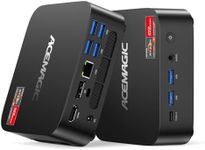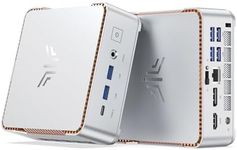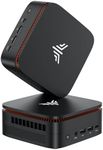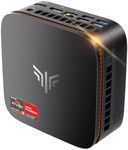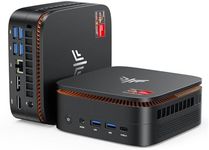Buying Guide for the Best Gaming Mini Pcs
Choosing a gaming mini PC can be exciting but also a bit overwhelming due to the many options and technical terms. The key is to focus on what you want to play, how much space you have, and how portable you need your system to be. Gaming mini PCs are designed to offer strong performance in a small package, making them great for those who want a tidy setup or need to move their PC around. To find the best fit, you should understand the main features that affect gaming performance and how they relate to your needs.Processor (CPU)The processor, or CPU, is the brain of your mini PC and handles all the instructions from your games and other programs. A faster CPU means smoother gameplay, especially in games that rely heavily on calculations, like strategy or simulation games. CPUs are often described by the number of cores and their speed (measured in GHz). For light gaming or older titles, a quad-core CPU is usually enough, but for modern, demanding games, a six-core or higher CPU is better. If you plan to multitask or stream while gaming, a more powerful CPU will help keep everything running smoothly.
Graphics Card (GPU)The graphics card, or GPU, is responsible for rendering images and video, making it the most important part for gaming. A stronger GPU allows you to play games at higher settings and resolutions with smoother frame rates. Mini PCs may use integrated graphics (built into the CPU) or dedicated graphics cards. Integrated graphics are fine for casual or older games, but for modern or visually demanding games, a dedicated GPU is essential. When choosing, think about the types of games you want to play and the resolution of your monitor. If you want to play the latest games at high settings, look for a mini PC with a mid-range or high-end dedicated GPU.
Memory (RAM)RAM is the short-term memory your PC uses to quickly access data while gaming. More RAM allows your system to handle more tasks at once and can improve performance in games that use a lot of resources. For most gaming, 8GB of RAM is the minimum, but 16GB is recommended for smoother performance and future-proofing. If you plan to run other programs while gaming, like streaming software or web browsers, more RAM will help keep everything responsive.
Storage (SSD/HDD)Storage is where your games, files, and programs are kept. There are two main types: SSDs (solid-state drives) and HDDs (hard disk drives). SSDs are much faster, which means games load quicker and your system feels more responsive. Most modern mini PCs use SSDs, and a capacity of 512GB or more is good for storing several games. If you have a large game library, look for options with expandable storage or the ability to add an external drive.
Size and PortabilityOne of the main reasons to choose a mini PC is its compact size. Mini PCs come in various sizes, from ultra-compact models that fit in your hand to slightly larger ones that still save space compared to traditional desktops. If you need to move your PC often or have limited desk space, a smaller model is ideal. However, keep in mind that the smallest models may have less room for powerful components or upgrades.
Cooling and NoiseGaming can make your mini PC work hard, generating heat and sometimes noise from fans. Good cooling is important to keep your system running smoothly and to prevent overheating. Some mini PCs use quiet or even fanless cooling, but these may not handle high-performance gaming as well. If you value a quiet environment, look for models with efficient cooling systems and check user reviews for noise levels.
Connectivity and PortsThe types and number of ports on your mini PC determine what you can connect, such as monitors, keyboards, mice, and external drives. For gaming, make sure there are enough USB ports for your accessories and at least one HDMI or DisplayPort for your monitor. If you plan to use wireless accessories or connect to the internet without cables, check for built-in Wi-Fi and Bluetooth. Consider your setup and make sure the mini PC has the connections you need.
UpgradabilitySome mini PCs allow you to upgrade parts like RAM or storage, while others are more limited due to their compact design. If you want to keep your system up to date or expand its capabilities in the future, look for models that make it easy to add or replace components. If you prefer a simple, maintenance-free system, a less upgradable model may be fine.
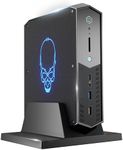
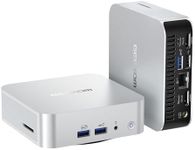
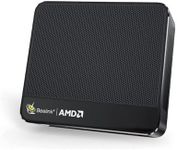
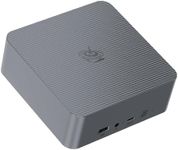
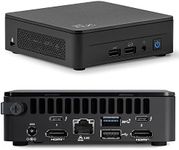
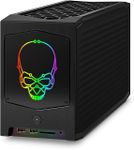

![ACEMAGICIAN Mini Gaming PC [AMR5],](https://images-proxy.bestreviews.guide/4VBL3FzRB9kpH3I2wsBfjH-44jE=/0x150/https://m.media-amazon.com/images/I/41n3Z2+rAIL._AC_CX679_.jpg)

